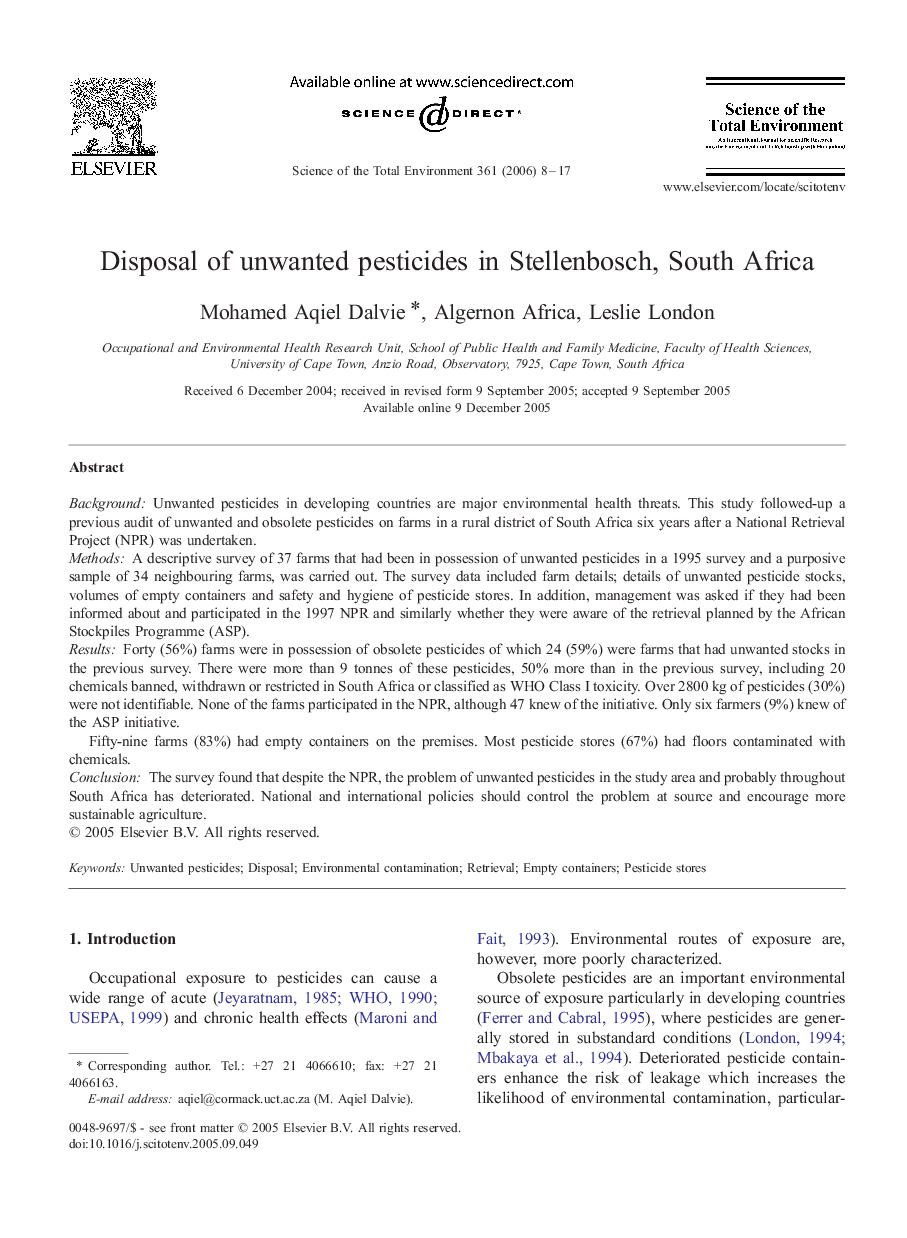| Article ID | Journal | Published Year | Pages | File Type |
|---|---|---|---|---|
| 4434025 | Science of The Total Environment | 2006 | 10 Pages |
BackgroundUnwanted pesticides in developing countries are major environmental health threats. This study followed-up a previous audit of unwanted and obsolete pesticides on farms in a rural district of South Africa six years after a National Retrieval Project (NPR) was undertaken.MethodsA descriptive survey of 37 farms that had been in possession of unwanted pesticides in a 1995 survey and a purposive sample of 34 neighbouring farms, was carried out. The survey data included farm details; details of unwanted pesticide stocks, volumes of empty containers and safety and hygiene of pesticide stores. In addition, management was asked if they had been informed about and participated in the 1997 NPR and similarly whether they were aware of the retrieval planned by the African Stockpiles Programme (ASP).ResultsForty (56%) farms were in possession of obsolete pesticides of which 24 (59%) were farms that had unwanted stocks in the previous survey. There were more than 9 tonnes of these pesticides, 50% more than in the previous survey, including 20 chemicals banned, withdrawn or restricted in South Africa or classified as WHO Class I toxicity. Over 2800 kg of pesticides (30%) were not identifiable. None of the farms participated in the NPR, although 47 knew of the initiative. Only six farmers (9%) knew of the ASP initiative.Fifty-nine farms (83%) had empty containers on the premises. Most pesticide stores (67%) had floors contaminated with chemicals.ConclusionThe survey found that despite the NPR, the problem of unwanted pesticides in the study area and probably throughout South Africa has deteriorated. National and international policies should control the problem at source and encourage more sustainable agriculture.
